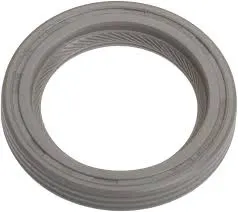10 月 . 19, 2024 05:17 Back to list
high temp oil seal
Understanding High Temperature Oil Seals Essential Components for Industrial Applications
High temperature oil seals play a critical role in various industrial applications, where maintaining the integrity of lubrication systems is essential for optimal machinery performance. These components are designed to withstand extreme temperatures while providing reliable sealing against oil leakage, which is vital in safeguarding equipment and ensuring operational efficiency.
The Importance of Oil Seals
Oil seals, also known as lip seals or rotary shaft seals, are used to retain lubricants and prevent contaminants from entering machinery. They are particularly important in systems operating under high temperature conditions, where the risk of lubricant degradation and seal failure increases significantly. High temperature oil seals are engineered to withstand elevated temperatures, reducing the likelihood of issues such as oil loss, contamination, and subsequent machinery damage.
Types of High Temperature Oil Seals
High temperature oil seals can be made from various materials depending on the specific requirements of the application. Common materials include
1. Fluoroelastomers (FKM) Known for their exceptional resistance to high temperatures and aggressive chemical environments, fluoroelastomers are a popular choice for high temperature applications. They can typically withstand temperatures up to 200°C (392°F) or higher.
2. Silicone Rubber (VMQ) Silicone materials also exhibit excellent temperature resistance, often working effectively in environments ranging from -60°C to 250°C (-76°F to 482°F). Silicone oil seals provide good flexibility and stability, making them suitable for a variety of applications.
3. Polyurethane (PU) Polyurethane seals are known for their high wear resistance and durability. They can operate effectively in temperatures up to approximately 120°C (248°F) and are ideal for applications requiring high resilience.
4. Metallic Seals For extremely high-temperature applications, metallic seals made from materials like stainless steel can be employed. These seals can endure higher temperatures and pressures, typically found in the petrochemical and aerospace industries.
high temp oil seal

Applications of High Temperature Oil Seals
High temperature oil seals are used across multiple industries, including
- Automotive In engines and gearboxes, high temperature oil seals help in preventing oil leaks, which is critical for performance and safety.
- Aerospace Seals in aircraft systems must withstand extreme temperatures and pressures, making high temperature oil seals indispensable for the reliability of various mechanisms.
- Manufacturing In machinery such as pumps and turbines, oil seals prevent lubrication failure, ensuring that equipment operates efficiently without overheating.
- Chemical Processing The ability of high temperature oil seals to resist chemical exposure and maintain performance under stringent conditions is crucial in chemical plants.
Challenges and Considerations
While high temperature oil seals are essential, they are not without challenges. Choosing the right seal involves considering factors such as compatibility with the fluid being sealed, the specific temperature range of the application, and any mechanical stresses they may face. It is crucial to also monitor the condition of these seals regularly, as even high-quality seals can degrade over time due to continuous exposure to extreme conditions.
Conclusion
In summary, high temperature oil seals are vital components in ensuring the longevity and efficiency of machinery operating under challenging conditions. By selecting the appropriate material and type of seal for a specific application, industries can enhance equipment reliability, minimize downtime, and ultimately optimize operational performance. Understanding the significance of these components is a key step for any maintenance professional or engineer dedicated to keeping machinery running smoothly in high temperature environments.